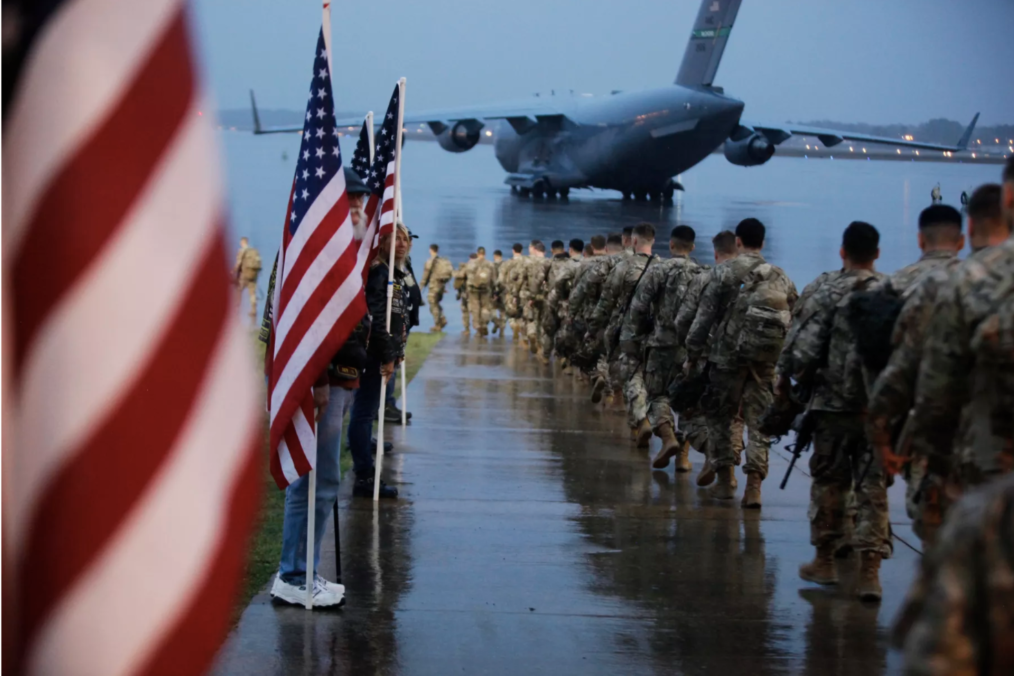
This 9/11 Anniversary Brings Afghan War to the Forefront
9/11 is undoubtedly a tragic and disturbing act of terrorism on US soil, but it acted as a wake-up call for American policymakers at the same time. It is a logical conclusion that the horrible events of that day would not have happened had the US not walked away from the region once their interests were victorious after a prolonged proxy war against the Soviet Union (1979-1989).
After 19 years of conflict, Afghan negotiators headed to Doha for the intra-Afghan dialogues, an initiative started by the United States as they act as the catalyst between the two warring parties- the Taliban and the Afghan government being the most prominent third-party mediator.
Two days before 9/11, the National Hero of Afghanistan Ahmad Shah Massoud was assassinated by al-Qaeda in Takhar-Afghanistan. The legendary fighter who battled the Soviets and later the Taliban, warned months before his death, that a large-scale attack is underway on the US and Europe soil by al-Qaida. Either the US neglected to grasp the full picture of the attack or did not get enough intel to act and prevent the catastrophe.
Since the commencement of the 19-year long War on Terror, the US has played a pivotal role in ending the Afghan conflict, having as many as 100,000 troops stationed there as part of the 2009 surge. Over $2 trillion USD has been spent on infrastructure, counter-terrorism operations, and building the Afghan National Defense Security Forces to reach a 360,000-strong force, as originally envisioned. This combination of nation-building and counterterrorism has cost the US heavily — financially as well as the 2400 American troops who have lost their lives.
Despite the failures to form strong Afghan institutions and violence of the past nearly two decades, tremendous progress has taken place. Today, an estimated 3.5 million Afghan girls are enrolled in school, a stark contrast to the 50,000 that were enrolled during the Taliban’s reign.
The Taliban governed for five years (1996-2001) and instituted barbaric Islamist policies, such as banning girls from school and stoning women to death. In the 1990s, they provided sanctuary to al-Qaeda and the Haqqani Network, turning Afghanistan into a safe haven for terrorist groups, seeking ‘an entry to heaven.’ Infamous leaders such as Osama bin Laden and Abu Musab al-Zarqawi (the founder and leader of the Islamic State) used Afghanistan as a strategic transit point. Terror groups used Afghanistan as the logistic headquarters for deadly attacks in Kenya and Tanzania as well as the orchestration of 9/11.
The push from the Trump administration to withdraw US forces from Afghanistan, with the latest US-Taliban deal reached earlier this year may result in further destabilization. An exit strategy is not always the best strategy. Important questions arise: Will the Taliban remain loyal to their promises? Will there be a guaranteed agreement that the Taliban will no longer harbor terrorism and plan attacks on US soil?
An exit from Afghanistan would result in the creation of another battleground for terrorism. Similar to the vacuum of power created by a lack of American interest in the early 1990s, parallel circumstances would emerge now. The Taliban were enabled to usurp power and consequently turn the country into a safe haven for Islamist extremism back then and thus it remains imperative that the US understands what is at stake if they decide to completely leave Afghanistan now. The Taliban is estimated to have 60,000 active fighters and control roughly 50-70 percent of Afghan territory. They maintain a feared presence across the entire country, and international support for law and order against them is starting to dwindle.
Additionally, the current global political atmosphere commands that the United States adapt its commitments within Afghanistan and focus greater attention towards the East. China continues its ascendance and an ever-stronger India are taking their places on the world stage. Given that the US rivals in the region, primarily Russia, China, and Iran also compete in the region, another regional power may quickly supplant their former position and advance to this strategic location.
The Taliban are not going to cut ties with al-Qaeda and the Afghan peace process is unexpected to reach a conclusion soon. Both require time and commitment. It is vital that the next US presidential administration retains a small presence of US troops (as low as 4000) in combination with intelligence operators and diplomats to ensure promises are kept over the next few years. As well, these factors are important in the elimination of terror cells. A new US strategy may also focus on the proper allocation of resources to further avoid wasting US taxpayer money and systematic corruption in Afghanistan.
Finally, as the Taliban are making peace, the Islamic State of Iraq and the Levant – Khorasan Province (ISK, ISP, or Daesh-Khorasan) — continues to gain strength through deadly attacks just as the Taliban remain engaged with the Afghan government. It is imperative to devote attention to their rise and activities in this general analysis. Further IS-K has been regrouping and the radical Taliban fighters who opposed the US-Taliban agreement can create a combination of “Islamic Emirate, Caliphate” as their objective.
Given that the Taliban’s main supply route for both personnel and weapons is through Pakistan, the insurgency group can and will continue to fight as long as they have support and safe-havens in Pakistan. They can do so by blocking foreign fighters and state-sponsors of terrorism in interfering in the Afghan peace talks. Further, they can use their diplomatic expertise to ensure that foreign actors, push the Taliban to join the negotiation table.
A stable Afghanistan benefits the region and protects the United States from any potential 9/11 style attacks in the future.
Ahmad Shah Mohibi is the Founder of Rise to Peace, a Washington-based counter-terrorism organization. Follow him on Twitter at @ahmadsmohibi
NeverForget 9/11

